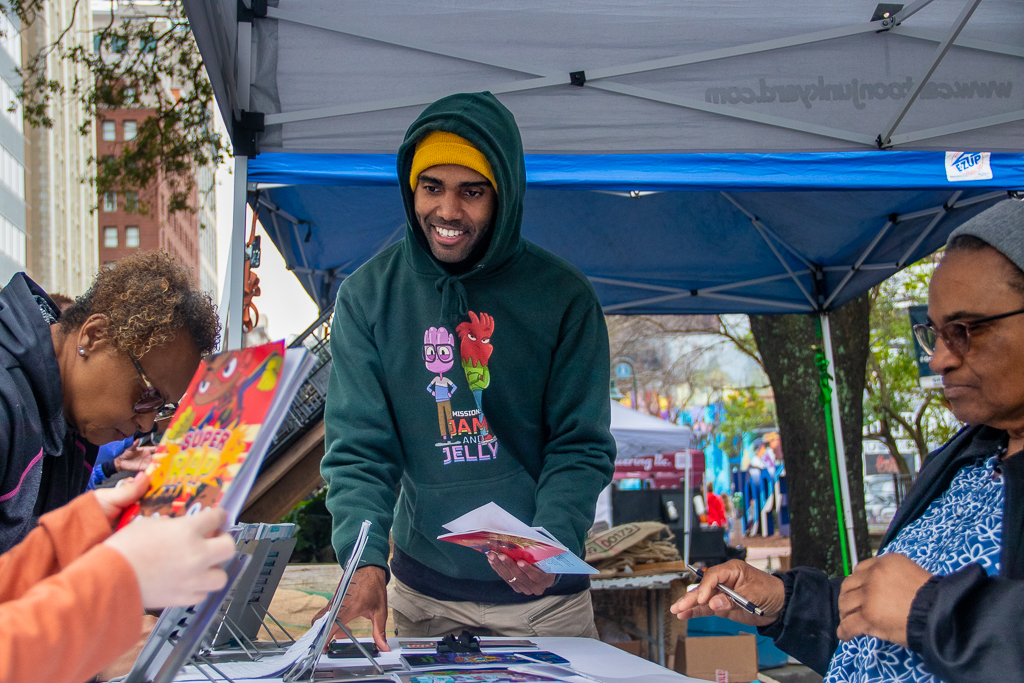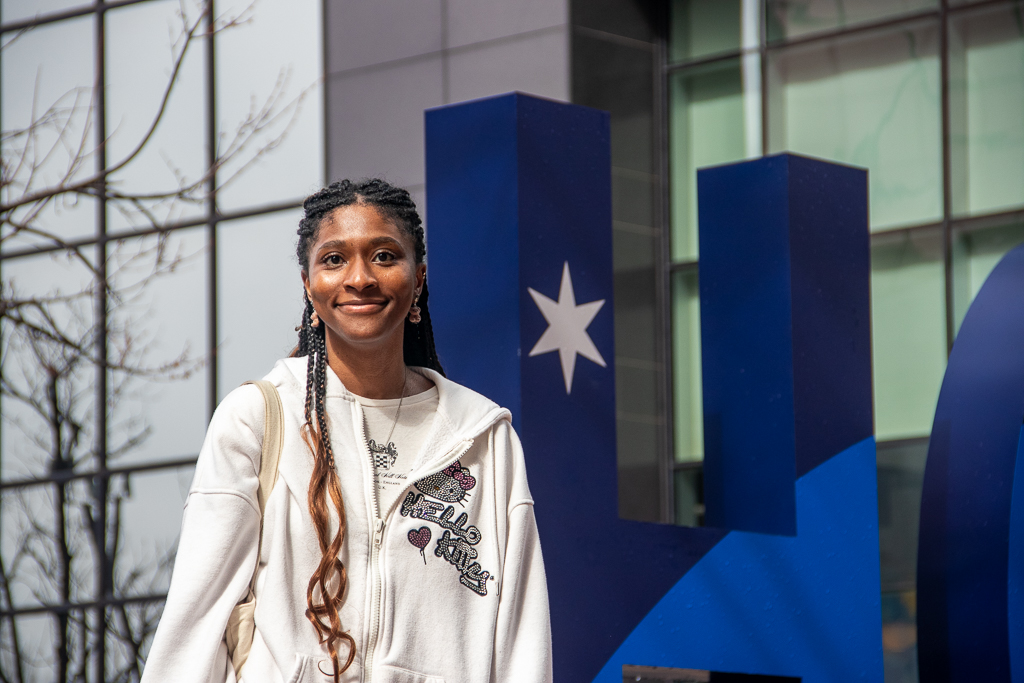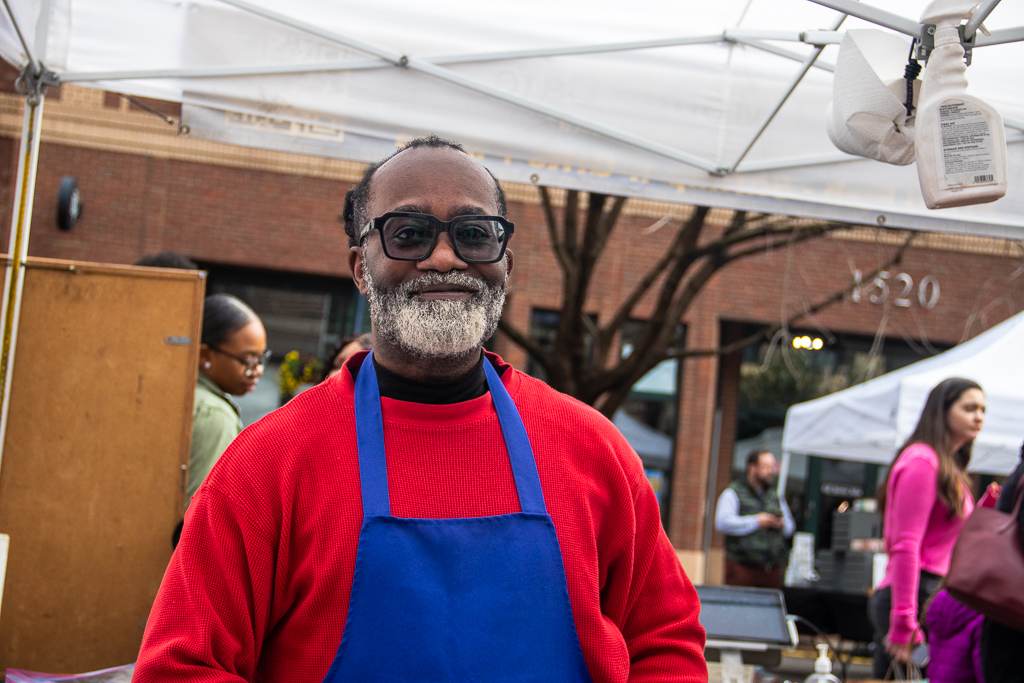A new age of politics: The power of Black youth voters
When the 15th amendment to the United States Constitution was ratified in 1870, it ensured that no one’s right to vote would be denied on the basis of race or color. It had been 254 years since the first slave ship landed in America, and it would be 85 years until every African American’s right to vote would be protected with the passage of the Civil Rights Act. An additional 6 years and another amendment -the 26th- would pass before Black people 18 and over had the right to vote.
Since the 26th amendment was ratified the youth vote, defined by Director of Public Information and Outreach for the South Carolina Election Commission TJ Londeen as voters 18 – 25, has stayed consistently low. The Black youth vote in particular has languished far behind young voters of other ethnicities. According to Tufts University in 2022 young Black voters constituted 10% of all voters aged 18-29, despite making up 14% of the American population in that age range. They were the only ethnic group (aside from voters who refused to state their ethnicity) to vote under their share of the population.
Lamar Tucker, a 51 year old vendor at the Soda City Market, believes that youth engagement is the root of the problem.
“Few young people are interested in the political process unless they’re in school, and that’s something that they have to do for an assignment. When they’re not doing it for school, they aren’t engaged,” Lamar Tucker said. “(They think) I’m not voting because my voice is not heard or nothing gets done anyway. So they’re dealing with different aspects of that and influences.”
Historically, youth voting turnout in the 18-29 age group has maintained a meager 49.95% average over the past 13 presidential elections, according to statista.com. Lundeen and the state of South Carolina have seen this firsthand, with only 7% of all registered voters aged 18-29 turning out for the Feb. 25 Republican presidential primary.
Kamara Thompson, a 16 year old who helps her mother run their stand at the Soda City Market, cites the lack of resources in predominantly Black schools as a factor that dampens Black youth turnout.
“I feel like we don’t get the information we need because maybe we (Black people) don’t go to a school that has a program that is specifically for civics knowledge and stuff. So it’s all about accessibility. And I feel like a lot of our (Black) people lack that,” Thompson said.




High school teacher Cameron Tucker likewise believes that a lack of awareness leads to low participation among youth.
“Coming from somebody that’s been an educator and been in schools. It doesn’t seem like they know a whole lot about how to vote and what it means to vote. I feel like voting is something a lot of youth learn about from their parents rather than learning in school,” Cameron Tucker said.
Social Media is a great tool for people of all ages to interact with each other and learn. With politics featuring heavily on platforms like TikTok and Instagram, social media serves as a newsource for many young people today.
“I feel like our generation doesn’t like watching news really like that? You know, we might hear information on different social media outlets, but you know, there are a lot more things that have our generation’s attention,” Shawn Beach, a children’s book author, said.
With youth voters focused on other things and attention spans waning, young people cannot get accurate and well-researched information, according to Lamar Tucker.
“Tik Tok and Instagram when they came out with the reels, those are three to four minutes and less than 30 seconds. Attention span is not as it should be as far as getting information. Certain people may see a candidate’s face and continue to scroll through. So you have to be looking at what’s happening and the information that comes with you,” Lamar Tucker said.
With information absorption seeming to be a problem, educators are asked what they see with the upcoming generation. Speech therapist Adrianna Coates not only teaches students about language learning, but also enjoys observing their growth into the world of voting.
“I actually work at a high school here and they actually all get really excited when it’s time for them to be able to vote. Now, I’m pretty sure they probably don’t know a lot about what they’re voting for. But they do get excited to go vote,” Coates said. “Teenagers are very self-centered. So they just kind of worry about things that affect them personally, like directly in their day to day life, so they don’t really think about the bigger things that are going on.”
If youth voters are going to the polls without properly educating themselves, they won’t be able to choose the candidate that best represents them and their values.
“They need to do some research, I tell them ‘what changes do you want to see in your local community’ and I tell them to look at whatever candidates are running, platforms they stand on, and if there’s something that we think is a need or to leave and then you can make a decision. Don’t just go vote for a candidate because everybody is voting for a candidate, make sure it’s something that you want and do your research. As young people continue to get older and mature, they understand how the political process works, and then they are able to make a more informed decision at that time when it comes to voting,” Lamar Tucker said.
With the older generations of Black voters being driven to vote by events such as the Civil Rights Movement, the younger generation finds it hard to be motivated to enter the polls. However, as they continue to grow, some they look back to the past for influence and guidance.
“It felt like I was doing something that like my ancestors would have been grateful for you know what I mean? Like it felt like I was doing what I was supposed to do and, you know, exercising my rights and stuff,” Beach said. “For me, I just vote for what I feel needs to be done right. I’m also thinking about my people as well. That does factor into why I vote. I’m always thinking the people I represent”
With some youth still being guided by the previous, the older generations also seek to further educate and inform their followers.
“African Americans are prone to voting democrat. I grew up thinking that’s what you have to do. But I’ve also learned that there’s a lot of republican candidates that I support,” Lamar Tucker said. “It depends on what their influences are locally and around them because their family and their friends, those influences help direct their minds towards that aspect.”
What can be changed to influence young Black voters to head to the polls? Members of the older generation such as Lamar Tucker believe that educating the youth is the most important objective.
“They’re more or less voting based on the influences around them. That is a great thing, but they need to also consider educating themselves before they vote,” Lamar Tucker said.
Educators find the answer in educating the youth at home and finding a role model.
“I just think that it starts at home. So having the parents be more aware of how important it (taking part in politics) is. That way they can be able to talk to their kids about it,” Coates said.
Public officials such as Londeen believe the answer resides in representation.
“Having a voter base that can feel like they’re represented with candidates is a way to get people to come out and vote. It’s a lot more difficult to get people to come out and vote when they don’t feel like they’re gonna be representative,” Lundeen said.
Moving into the future, Black youth represent a powerful presence in politics. 14% of US children are identified as black on their birth certificate, and with modern elections often being decided by less than a percentage point, Young Black voters will undoubtedly play an important part in the future of America.



